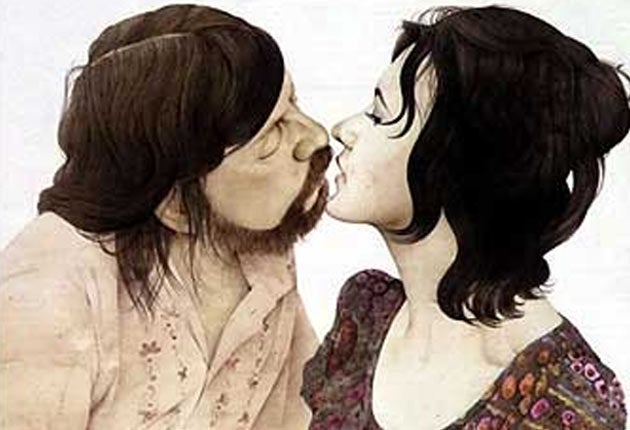The Week in Radio: The joy of sex on the radio

Your support helps us to tell the story
From reproductive rights to climate change to Big Tech, The Independent is on the ground when the story is developing. Whether it's investigating the financials of Elon Musk's pro-Trump PAC or producing our latest documentary, 'The A Word', which shines a light on the American women fighting for reproductive rights, we know how important it is to parse out the facts from the messaging.
At such a critical moment in US history, we need reporters on the ground. Your donation allows us to keep sending journalists to speak to both sides of the story.
The Independent is trusted by Americans across the entire political spectrum. And unlike many other quality news outlets, we choose not to lock Americans out of our reporting and analysis with paywalls. We believe quality journalism should be available to everyone, paid for by those who can afford it.
Your support makes all the difference.Sex on radio is generally far less embarrassing than on TV. Apart from the odd shower scene in The Archers, which usually sounds more like asthma than intercourse, it is rarely dramatically represented. Unlike on TV there is no chance of stumbling unawares on say, lions mating, in mixed company. Without the shock of gratuitous genital display which is the stock in trade of shows like Embarrassing Bodies, radio has to work much harder to provide the same multi-generational squirm.
The Woman's Hour feature about women making a quilt of "lovingly crafted vulvas" was probably one to avoid in the kitchen with teenagers. And if you were travelling with a car-load of children on holiday, then Tuesday's Am I Normal?, on the subject of libido, may well have prompted a dive for the off switch.
The programme tackled what might be called the Betjeman Issue, stemming from the elderly poet's famous riposte when asked on radio whether he had any regrets. His reply was, "I haven't had enough sex." Betjeman was, in fact, a typical bloke, if the serried ranks of experts were to be believed, because while "over 50 per cent of married people would like sex more often", that wish increases for men with age, and decreases for women.
GPs have a slang term, "NFN", meaning "Normal for Norfolk", but "Normal for Radio 4" could easily be another, because there's something about this sane, soothing series that makes it impossible to feel freakish. This week, even the most sexually sluggish could feel cheered. The usual depressing metaphors, "If you put a pebble in the jar for every time you make love in the first year and take a pebble out for every time you make love after, you probably won't empty the jar", were borne out by bold statistics. According to UCL Professor Anne Johnson, "frequency declines two years into a relationship by 50 per cent, to an average of four times a month." There was also news from the University of the Bleeding Obvious. Gay men have more sex. Ten per cent of people report a lack of desire over six months. Yet the presenter, Vivienne Parry, has a jolly bedside manner, confessing that "the miracle to me is that anyone has any libido" and her ability to be simultaneously informative and consoling is the mark of a true public service.
One man who has done more to challenge sexual stereotypes than most is the brilliant Barry Humphries, and his study of the culture of the Weimar era was an almost perfect match of presenter and theme. His interest began in Australia, where he encountered a famous German jazz singer pinning up his trousers in a Sydney tailor's shop. To Humphries, the Weimar republic was "dangerous, exciting and nothing like Melbourne." Produced by Hannah Rosenfelder and intercut with recordings of the real thing, Barry Humphries in Weimar was an exuberant recollection of "music from a society on the brink of cataclysm, dancing on a volcano."
Well we all know that feeling right now, and given that we are fated to live in interesting times, it's enlightening to look back on others. The summer of 1913 was one such and Radio 3's Stravinsky and the King's Horse was an intriguing attempt to trace parallels between the suffragette Emily Davison's suicide under the King's horse and the London premiere of Stravinsky's Rite of Spring, featuring the death of a young virgin. Dr Philip Bullock suggested that sexual radicalism and women's bodies became the focus of enormous challenges to the established order. As he said, "Because suffragettes lacked the vote they came up with novel ways of using their own bodies as a form of political self-expression." Well, there's plenty of challenges to the old order right now, but we've yet to see any sign of sexual radicalism. On radio at least.
Join our commenting forum
Join thought-provoking conversations, follow other Independent readers and see their replies
Comments